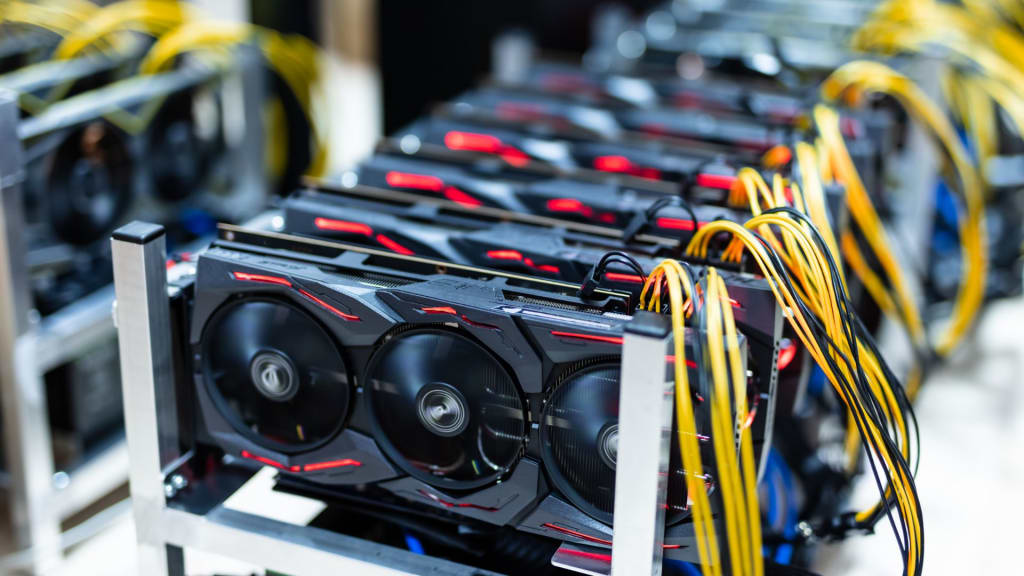How profitable is mining Bitcoin per day?
The price of Bitcoin is a crucial factor in mining profitability. Miners are rewarded with newly minted Bitcoins and transaction fees for successfully mining a new block.

The profitability of mining Bitcoin can vary greatly depending on several factors, including the cost of electricity, the efficiency of mining hardware, the current Bitcoin price, and the overall network difficulty.
Historically, Bitcoin mining has become increasingly competitive and specialized. Early on, it was possible to mine Bitcoin using a regular computer processor (CPU). However, as more miners joined the network, the difficulty level increased, and specialized mining hardware known as ASICs (Application-Specific Integrated Circuits) became necessary to mine profitably.
To estimate the profitability of Bitcoin mining, you need to consider the following key factors:
1. Mining hardware efficiency: The hash rate (computational power) of the mining equipment plays a crucial role. More efficient hardware can mine more Bitcoin with the same amount of electricity.
2. Electricity cost: Mining Bitcoin requires a significant amount of electricity, so the cost of electricity is a significant factor in profitability. Areas with lower electricity costs generally offer better mining conditions.
3. Network difficulty: The Bitcoin network automatically adjusts the mining difficulty every 2016 blocks (approximately every two weeks) to maintain a consistent block time. Higher network difficulty means it's more challenging to mine Bitcoin.
4. Bitcoin price: The price of Bitcoin has a direct impact on mining profitability. If the price increases, mining becomes more profitable, and vice versa.
Given the dynamic nature of these factors, it's challenging to provide an exact figure for Bitcoin mining profitability per day without specific details on hardware, electricity costs, and other variables. Various online calculators can help estimate potential profitability based on current conditions. However, it's worth noting that the mining landscape is highly competitive, and mining profitability can fluctuate significantly over time.
Cryptocurrency markets are highly volatile and subject to change. However, I can provide you with some general information about Bitcoin mining profitability.
Bitcoin mining profitability depends on several factors, including the cost of electricity, the efficiency of mining hardware, the current difficulty level of mining, and the price of Bitcoin. These variables can fluctuate significantly, making it difficult to provide an exact figure.
In the early days of Bitcoin, mining could be done using regular CPUs or GPUs. However, as the network has grown, the mining difficulty has increased, requiring specialized hardware known as ASICs (Application-Specific Integrated Circuits) to mine profitably. These ASIC miners are more efficient but can be expensive to purchase.
To calculate potential profitability, you would need to consider your mining hardware's hash rate (measured in terahashes per second), electricity costs, and any other associated expenses such as cooling and maintenance. You can use online calculators that take these factors into account to estimate potential profits.
It's important to note that Bitcoin mining has become increasingly competitive over time. Large-scale mining operations, often located in regions with low electricity costs, have a significant advantage. Additionally, the block reward for mining new Bitcoins decreases over time as part of the predetermined Bitcoin issuance schedule.
Given the volatile nature of the cryptocurrency market, it's crucial to do thorough research and consider all the costs and risks associated with mining before making any investment decisions.
Bitcoin mining requires specialized hardware known as ASICs (Application-Specific Integrated Circuits) that are designed to perform the necessary calculations for mining. These ASICs consume a significant amount of electricity in the process.
The difficulty of mining Bitcoin adjusts approximately every two weeks, depending on the total computational power of the network. As more miners join the network, the difficulty increases, making it harder to mine new blocks. Conversely, if miners leave the network, the difficulty decreases.
The price of Bitcoin is a crucial factor in mining profitability. Miners are rewarded with newly minted Bitcoins and transaction fees for successfully mining a new block. If the price of Bitcoin rises, the value of the rewards increases, potentially making mining more profitable. However, if the price falls, mining may become less profitable, especially if the electricity costs are high.
To estimate the profitability of Bitcoin mining, you would need to consider the electricity cost in your area, the efficiency of your mining hardware (measured in hash rate), and the current difficulty of the network. Additionally, you would need to factor in other expenses, such as cooling and maintenance costs.
There are online calculators and profitability calculators available that can help you estimate potential earnings based on these factors. Keep in mind that mining profitability can change rapidly due to fluctuations in Bitcoin's price and network difficulty. It's always a good idea to stay updated on the current market conditions before making any mining investment.
About the Creator
Forexwebstore
Forexwebstore.com Discover the Best Forex Indicators for a Simple Strateg. This page features key technical indicators for the most popular currency pairs in real time.






Comments
There are no comments for this story
Be the first to respond and start the conversation.